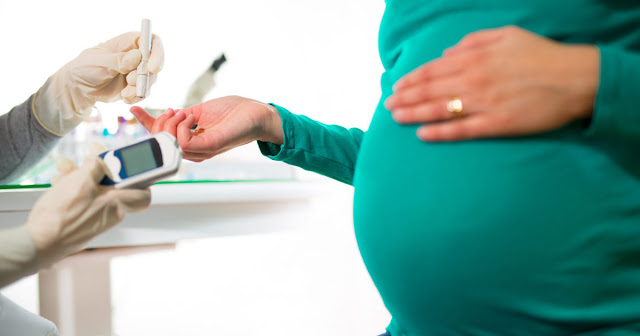Are you trying to conceive yet unable to find your bundle of joy? No wonder, despite trying fertility cleanse, practicing yoga, and following a perfect fertility diet, you might still face problems in conceiving. Maybe it is the right time for you to check the glucose level in your blood! Who knows, the reason you’re being deprived of the ‘good news’ could be due to a sudden relapse of diabetes! Diabetes is known to be a silent fertility killer and can affect anyone at any age.
Can Diabetes Cause Infertility?
Normally, insulin- a hormone secreted by the pancreas controls the blood glucose levels. When glucose level elevates, insulin is released into the blood to reduce the raised glucose. Patients who are diabetic produce very low or no insulin and hence the blood glucose levels increase drastically worsening the condition. It is a chronic medical disorder that is not curable.
Diabetes is affiliated with lower rates of fertility in women. There are a number of factors that can play a part including, overweight, being malnourished, having diabetic complexity, having PCOS, and having an autoimmune symptom. With this said, many women suffering from diabetes are capable of conceiving, particularly if diabetes is well managed and a healthy physical weight is maintained.
Normally, insulin- a hormone secreted by the pancreas controls the blood glucose levels. When glucose level elevates, insulin is released into the blood to reduce the raised glucose. Patients who are diabetic produce very low or no insulin and hence the blood glucose levels increase drastically worsening the condition. It is a chronic medical disorder that is not curable.
- As per definition, Infertility is described as being ineffective to conceive despite trying regular unprotected sexual intercourse for a year. As described by the National Health Service, 1 out of 7 couples in India face this problem and become the victim of depression.
- Studies show that almost 50% to 90% of women having Polycystic Ovarian Syndrome are insulin resistant. The American Diabetes Association says that being insulin resistant leads to enormous insulin circulation in the body, just as in the early stages of diabetes.
- Women with PCOS suffer from an abnormal amount of testosterone production (hyperandrogenism) which not only affects fertility but also leads to irregular periods (oligomenorrhea) or absent periods (secondary amenorrhea). PCOS is particularly associated with obesity and type 2 diabetic issues.
- On the other hand diabetes mellitus Type 1 and Type 2, are used for the diagnosis of both menstrual disorders as well as infertility. The reproductive time span of diabetic women might be reduced due to deferred menarche (the first occurrence of menstruation in a woman) and early menopause. Throughout the reproductive cycle in women, diabetic issues continue to cause menstrual disorders, for example, oligomenorrhea and secondary amenorrhea.
Common sources of Infertility in women
Diabetes is affiliated with lower rates of fertility in women. There are a number of factors that can play a part including, overweight, being malnourished, having diabetic complexity, having PCOS, and having an autoimmune symptom. With this said, many women suffering from diabetes are capable of conceiving, particularly if diabetes is well managed and a healthy physical weight is maintained.
The natural sources of infertility in women are cases that cause problems in releasing an ovum (egg). This may take place for a number of factors including having PCOS (Polycystic Ovary Syndrome), thyroid, and premature ovarian collapse. The existence of diabetic complications is also known to fundamentally reduce fertility rates.
Diabetic Conditions leading to infertility in women
- Polycystic ovary syndrome (PCOS)
- Oligomenorrhea (irregular periods)
- Secondary amenorrhea (absent periods)
- Premature menopause (premature ovarian failure)
- Endometrial cancer (uterine cancer)
- Microvascular and cardiovascular complications
Common sources of infertility in men
The most common symptom of male infertility is the poor quality of semen i.e. possessing low sperm count, having low sperm mobility (sperm that doesn't move properly towards the egg), and unnaturally shaped sperms. Varicoceles, generated by enlarged veins within the scrotum, is another familiar cause of infertility in men.
The most common symptom of male infertility is the poor quality of semen i.e. possessing low sperm count, having low sperm mobility (sperm that doesn't move properly towards the egg), and unnaturally shaped sperms. Varicoceles, generated by enlarged veins within the scrotum, is another familiar cause of infertility in men.
Diabetic conditions leading to infertility in men:
- Erectile malfunction - difficulty in achieving or retaining an erection
- Hypogonadism - possessing low testosterone levels
- Retarded ejaculation - defective ability to ejaculate
- Retrograde ejaculation –occurs when semen, which would, in most cases, be ejaculated via the urethra, is redirected to the urinary bladder.
Treatments for infertility
- If the cause cannot be recognized, couples are advised to go for assisted conception. Assisted Reproductive Technology (ART) involves procedures such as in-vitro fertilization (IVF) and intrauterine insemination (IUI) and others that are helping couples with infertility to enjoy the bliss of parenthood, the world over.
- In terms of the fertility issues attributable to diabetes, these risks can be decreased through effective control of blood glucose levels and through maintaining healthy body weight.
- Some issues with fertility can be attributed to stress so it's recommendable to take measures that will decrease the amount of stress you or your partner are going through.
- As it is said that prevention is the first step towards healing, so it is advisable that you consult a reproductive medicine specialist with the earliest hint of diabetes or even an increased blood glucose level.
Thank you for your time. Stay connected to Genome Fertility Blog for more tips, advise, and knowhows on infertility.



Comments
Post a Comment